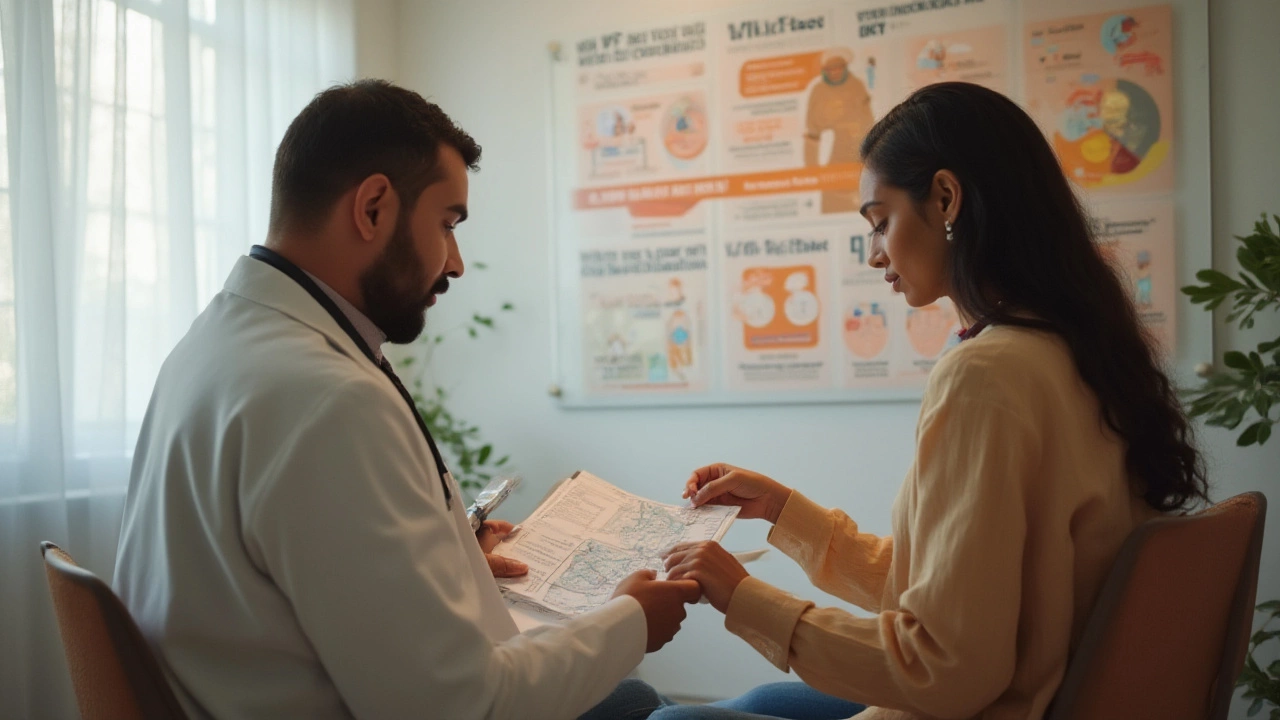IVF Safety: Essential Tips for a Secure Fertility Journey
If you’re thinking about IVF, the first question on most minds is safety. It’s natural to wonder whether the hormones, lab procedures, and surgical steps could pose hazards. The good news is that most clinics follow strict protocols that keep complications low, but a few things can still go wrong if you’re not prepared.
First, understand the most common side effects. Hormone shots often cause mild headaches, bloating, or mood swings. These usually fade within a few days, but if the pain is sharp or you develop a high fever, call your doctor. Another concern is ovarian hyper‑stimulation syndrome (OHSS), where the ovaries swell and cause abdominal discomfort. It’s rare with modern low‑dose regimens, yet knowing the warning signs—rapid weight gain, severe nausea, or shortness of breath—helps you act quickly.
Choosing a Clinic That Prioritizes Safety
Not all IVF centers are created equal. Look for facilities accredited by the Indian Council of Medical Research (ICMR) or the National Board of Examinations. Certified labs regularly test equipment, maintain cleanroom standards, and track embryo handling procedures. Ask to see their success rates, but also request data on complication rates. A transparent clinic will gladly share that information.
During your first visit, the doctor should explain the entire protocol—from medication schedules to egg retrieval. Make sure you leave with a written plan that includes dosage, timing, and emergency contact numbers. Having a clear roadmap reduces the chance of missed doses or timing errors that could compromise both safety and success.
Practical Steps to Keep Yourself Safe
1. Track every medication. Use a phone app or a simple pillbox to avoid double‑dosing. If you feel uneasy about a shot, confirm the dosage with your nurse before injecting.
2. Stay hydrated and eat balanced meals. Proper nutrition supports hormone metabolism and eases side effects. Salt‑rich foods can worsen OHSS symptoms, so keep your sodium intake moderate.
3. Schedule regular check‑ups. Ultrasound monitoring lets the doctor see how your ovaries respond. If they grow too fast, the doctor can adjust medication to prevent OHSS.
4. Plan for rest after egg retrieval. Most women feel fine after a few hours, but it’s wise to arrange a day off work and a friend or family member to drive you home.
5. Know the signs of infection. Though rare, infections can happen after the retrieval or embryo transfer. Persistent pain, redness, or discharge at the catheter site needs prompt medical attention.
Finally, keep your mental health in check. Stress doesn’t directly cause IVF failure, but anxiety can amplify perceived side effects. Simple breathing exercises, short walks, or talking to a counselor can keep you grounded throughout the cycle.
In summary, IVF is a safe option for most couples when you choose a reputable clinic, follow medication instructions, and stay alert to warning signs. By taking these practical steps, you protect your health and give your embryos the best chance to thrive.

Biggest IVF Risks: Understanding Complications, Side Effects, and Safety Tips
A deep dive into the biggest risk of IVF, critical complications, and safety insights to support couples on their fertility journey. Real facts, statistics, and expert tips.

How to Qualify for Ozempic at an Online Pharmacy
Jan, 24 2025

Top 3 Survivable Cancers: Understanding and Hope
Mar, 8 2025

Can You Safely Take Multiple Vitamins Together?
Jan, 23 2025

